During Northeastern graduate ceremony, David Roux urges students to build lives worth remembering
While individual memory defines identity, personality and creativity, shared memory, Roux said, drives culture and anchors civilization.
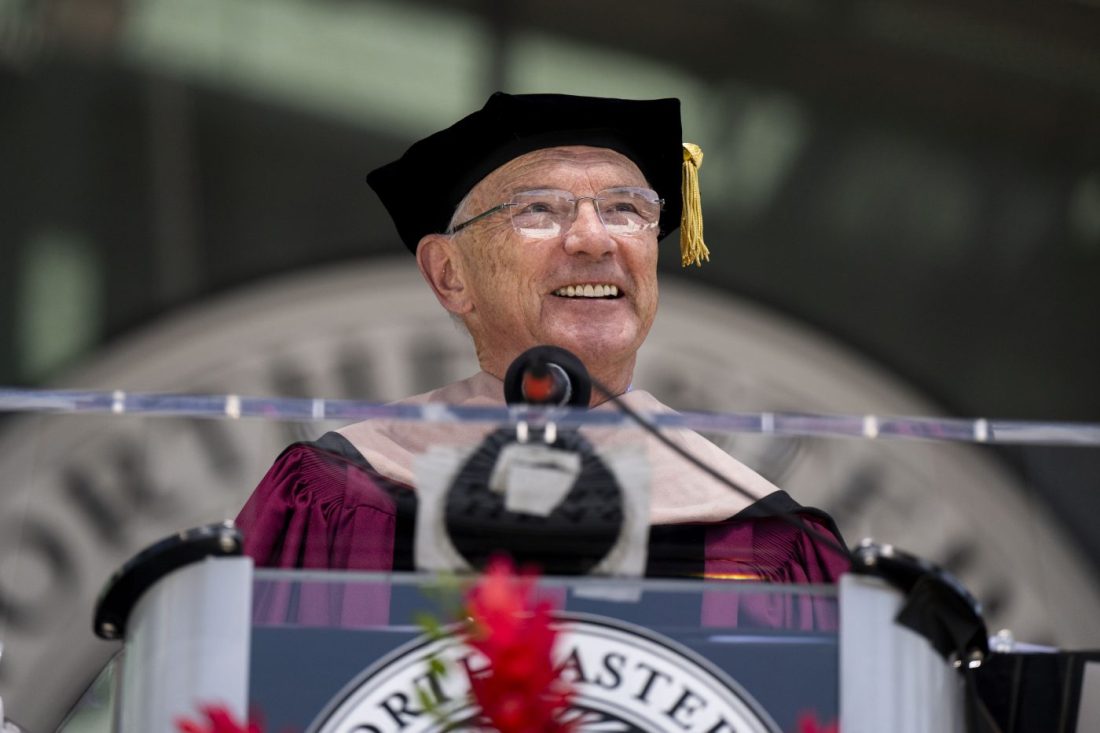
Standing in center field at Fenway Park, technology investor and philanthropist David Roux challenged Northeastern University’s Class of 2025 to build lives worth remembering — by leaning into the very things that make them human.
Speaking at Sunday’s graduate commencement ceremony, Roux addressed the 5,596 students, telling them that in an era increasingly shaped by artificial intelligence, it’s memory, creativity and connection that will give this generation its greatest advantage.
“What will you remember?” and “How will you be remembered?” were the powerful questions Roux posed to the graduates.
Memory, he said, is an extraordinary capability of the human brain — one that will give graduates a competitive edge in a world where AI threatens to eclipse human intelligence.
“Your memory is a hugely capable, dynamic thing and foundation for your future,” said Roux, chairman of the private investment firm BayPine and co-founder of Silver Lake, the world’s largest tech-focused private equity firm.
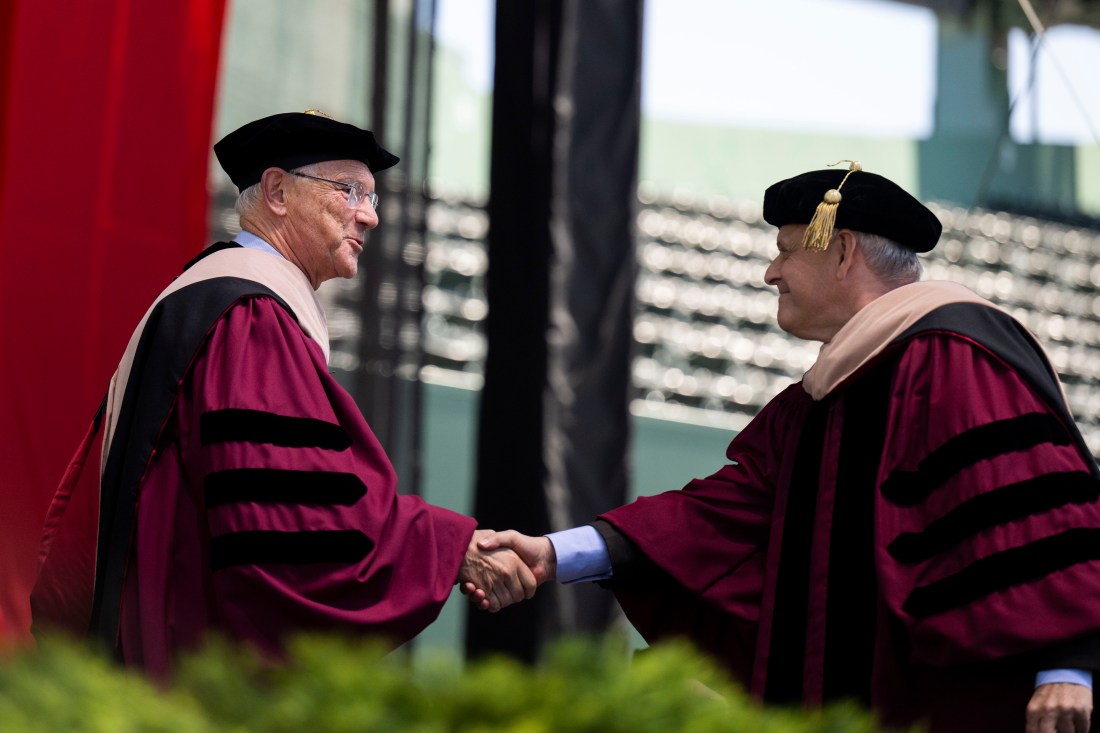
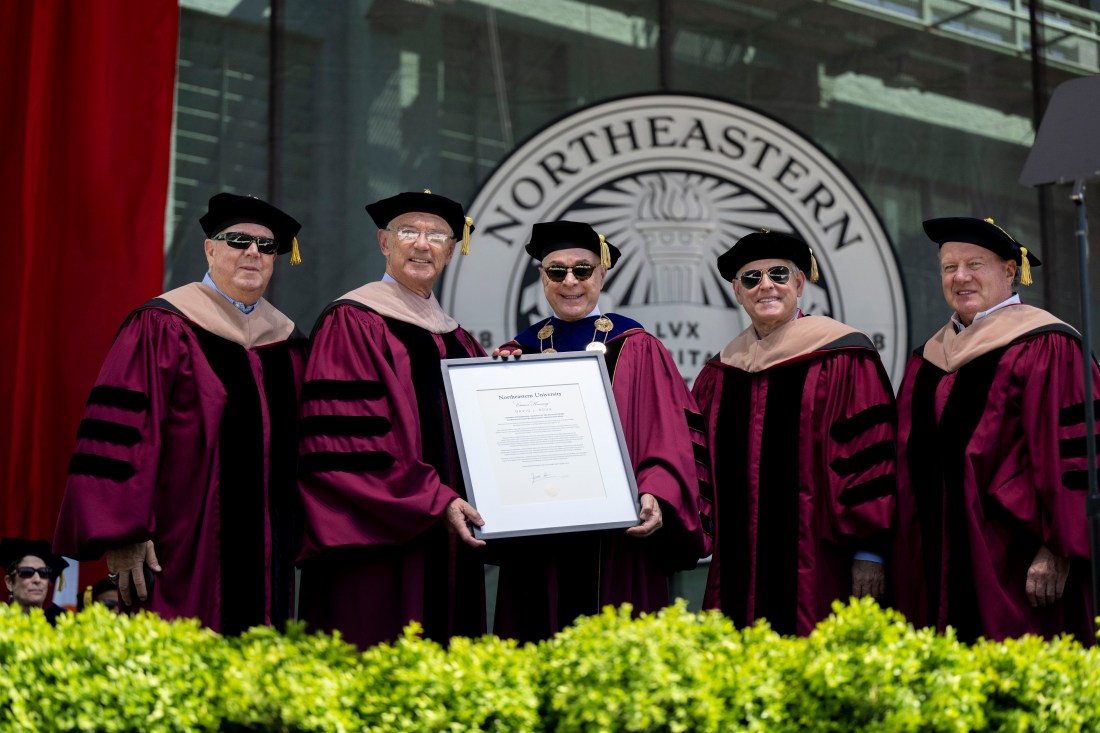
Shared memory anchors civilization
While individual memory defines identity, personality and creativity, shared memory, Roux said, drives culture and anchors civilization.
“It’s what holds us all together,” he said. “Memory is how we share values, establish common goals and rally collectively to defend ourselves from existential threats. It’s what we believe in, what we stand behind and are willing to fight for.”
Most graduates, he added, will remember their time at Northeastern — their friends, professors, co-ops and even the music of the moment. These formative years, according to neuroscientists, make up about 60% of adult recollections.
“But warm nostalgia and college memories alone can’t sustain you,” said Roux, who partnered with Northeastern in 2020 with his wife, Barbara, to launch the Roux Institute in Portland, Maine.
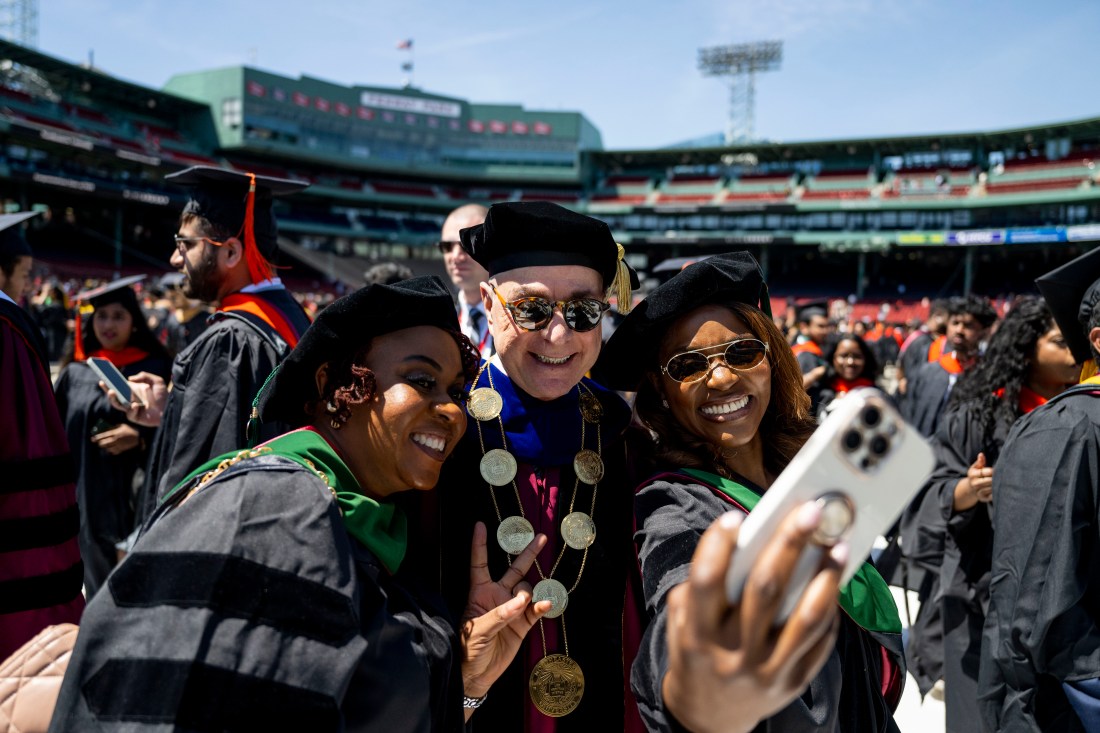
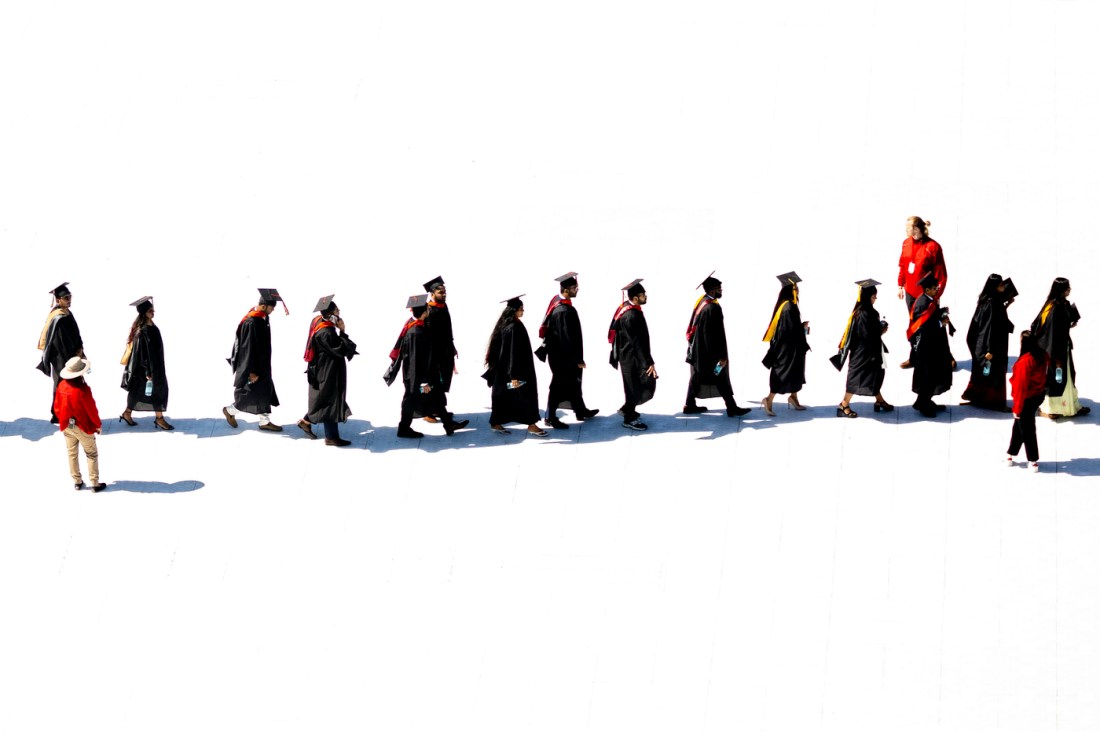
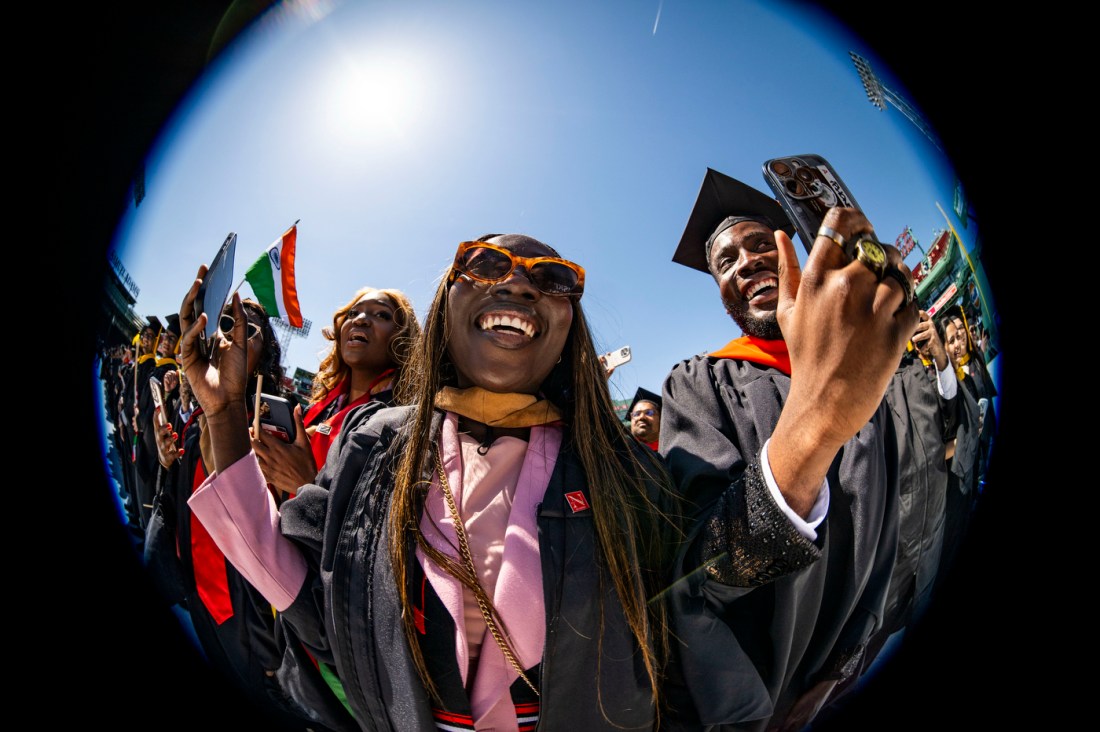
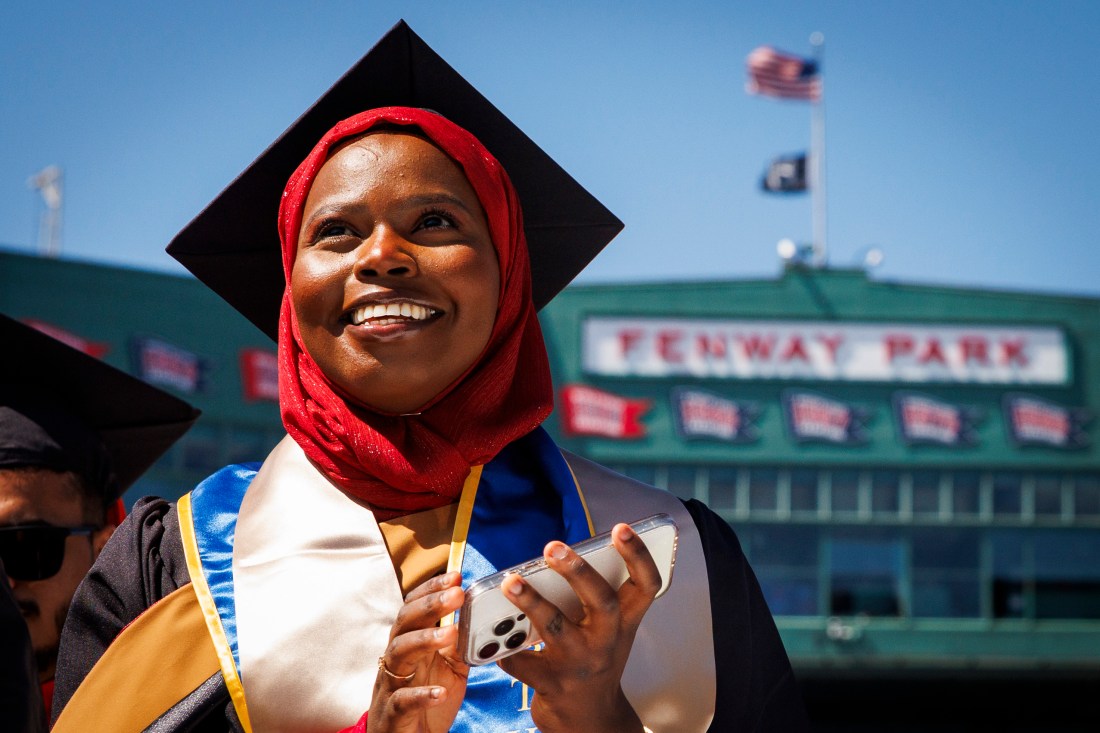
To remain relevant in the new age of AI, Roux emphasized, graduates must understand they won’t out-memorize an AI model or outperform computers in tasks like playing chess or sequencing genomes.
However, he said, they can outshine AI in areas where human memory fuels creativity, innovation and teamwork.
“Because the computer doesn’t really do ‘net new.’ It doesn’t empathize with authentic human emotion or come equipped with future vision,” Roux said. “Your giant career opportunity is to discover, create, connect and to build.”
Give the gift of time and attention
He urged graduates to build a “life worth remembering.”
“You won’t be remembered for who you are, for what you have, but for what you do and how you do it,” he said.
His advice: Give others the gift of time and attention.
“We all crave recognition and the everyday triumph that is human connection,” Roux said. “Showing up matters because it’s the personal touch that makes people feel most connected.”
Because time is limited, Roux told graduates to treat it with as much care as they would their finances.
“Spend your time as well as you spend your money,” he said.
Quoting Pericles, the first citizen of Athens, he added: “What humans leave behind is not what is engraved in stone monuments, but what is woven into the lives of others.”
“Start weaving yourselves into the fabric of your community — your neighborhoods, your workplaces and your extended family,” Roux said. “Help, care, support, heal and build great institutions. That’s what you can do to be the right kind of memorable.”
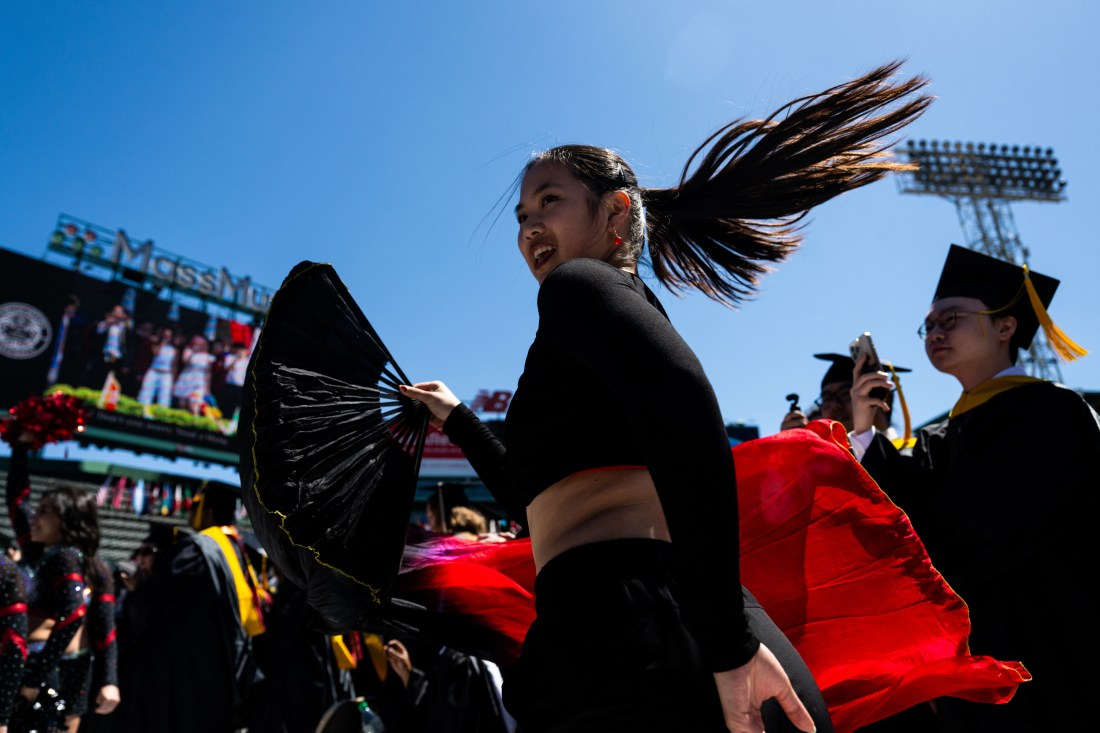
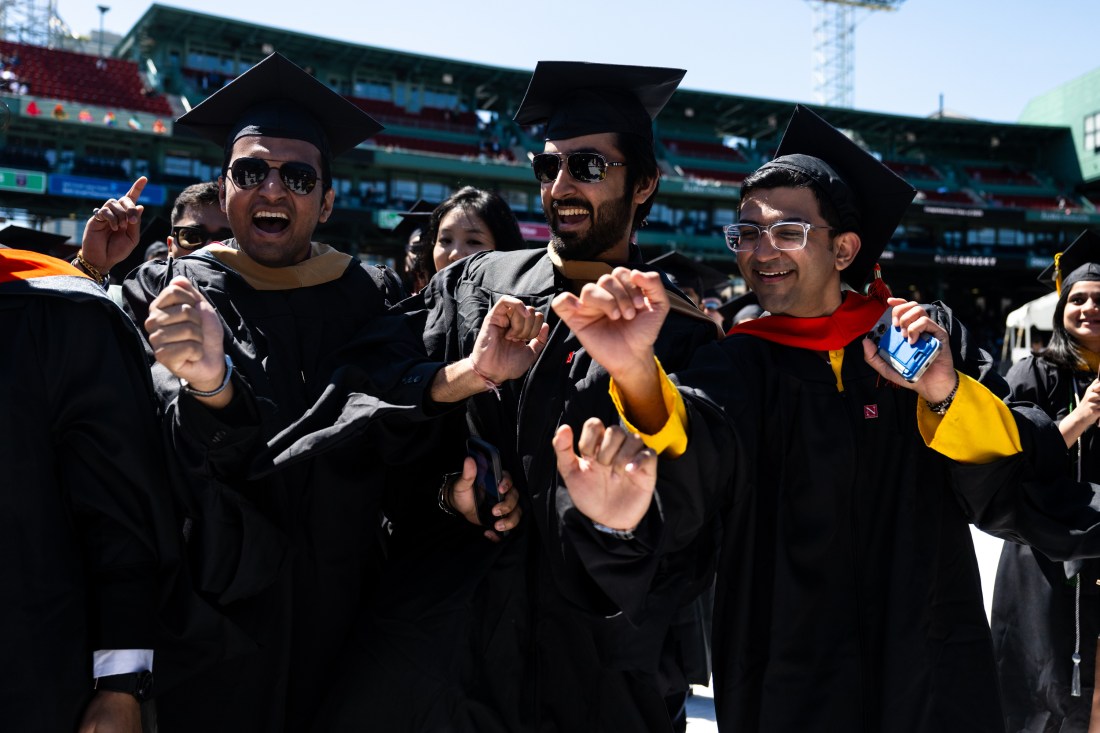
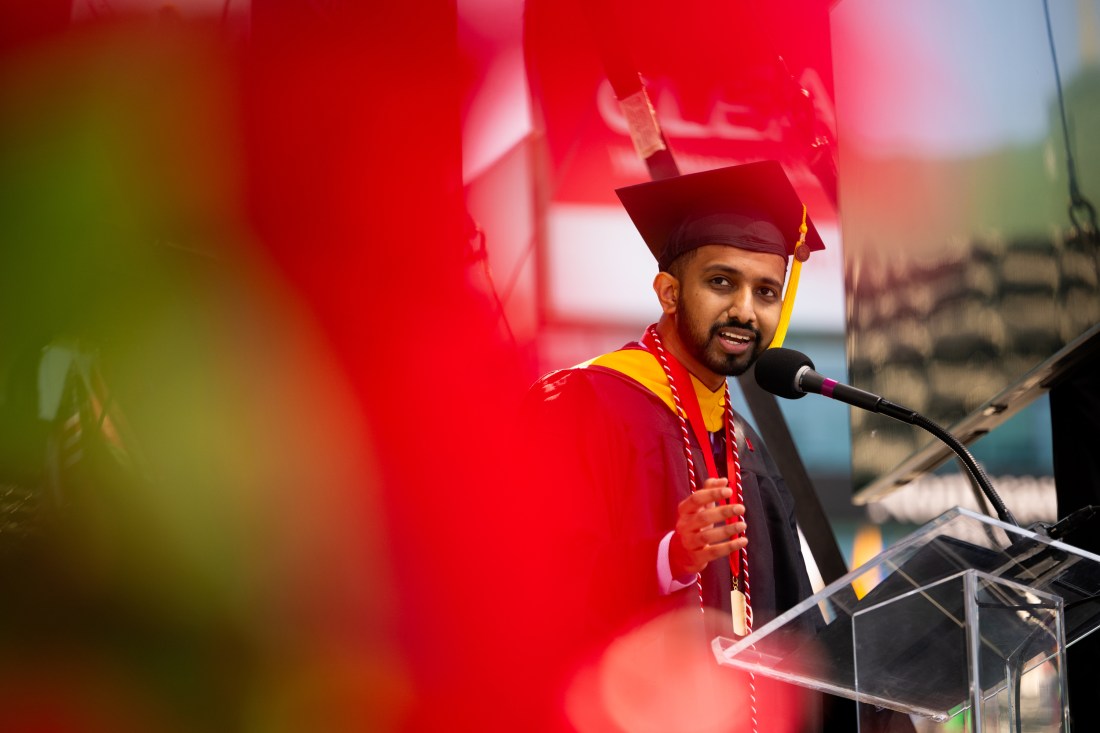
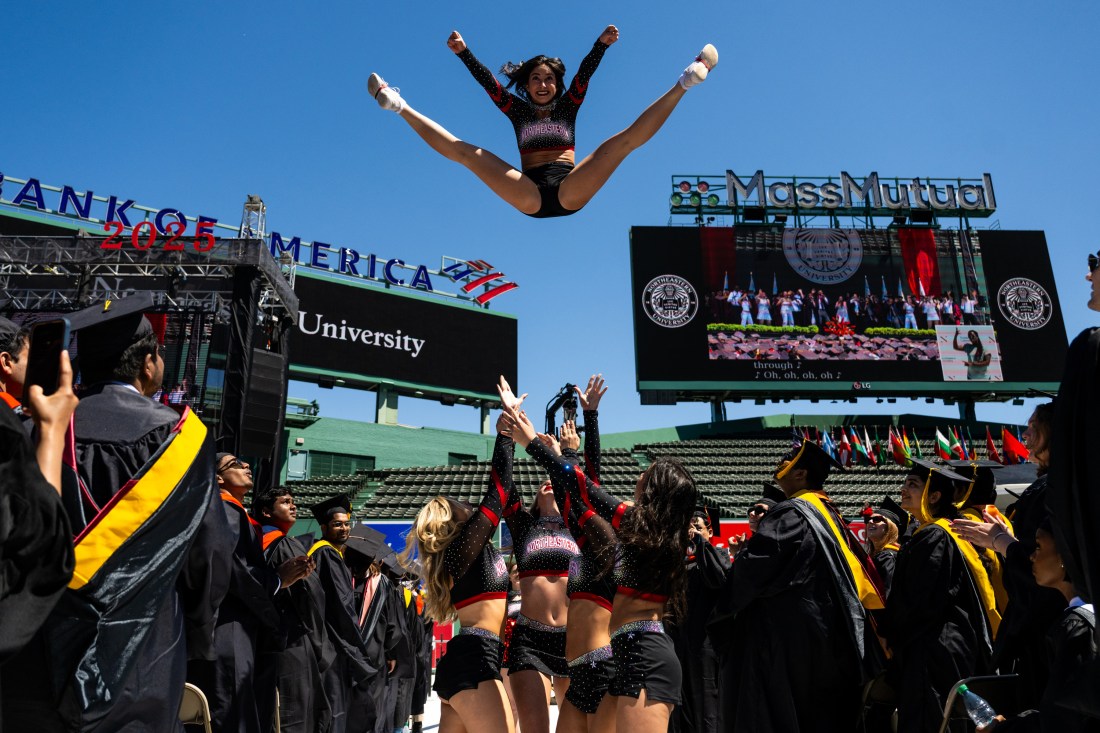
Aoun: ‘Powerful learning experiences’
Northeastern President Joseph E. Aoun, who introduced Roux, told graduates that in a world increasingly shaped by AI, their greatest advantage lies in four deeply human foundations: curiosity, creativity, context and community.
“These are powerful learning experiences,” Aoun said.
He began with curiosity, which he described as “the reason that the world spends billions of dollars on space exploration,” and the force that drives Northeastern students to explore unfamiliar fields and countries.
Next, he spoke of creativity, a uniquely human ability that transcends data and replication. Context, Aoun said, is something machines can’t grasp. Finally, he emphasized community as the force that gives purpose to all achievements.
“In a world so structured by data and design, human connection is a magical force,” Aoun said.
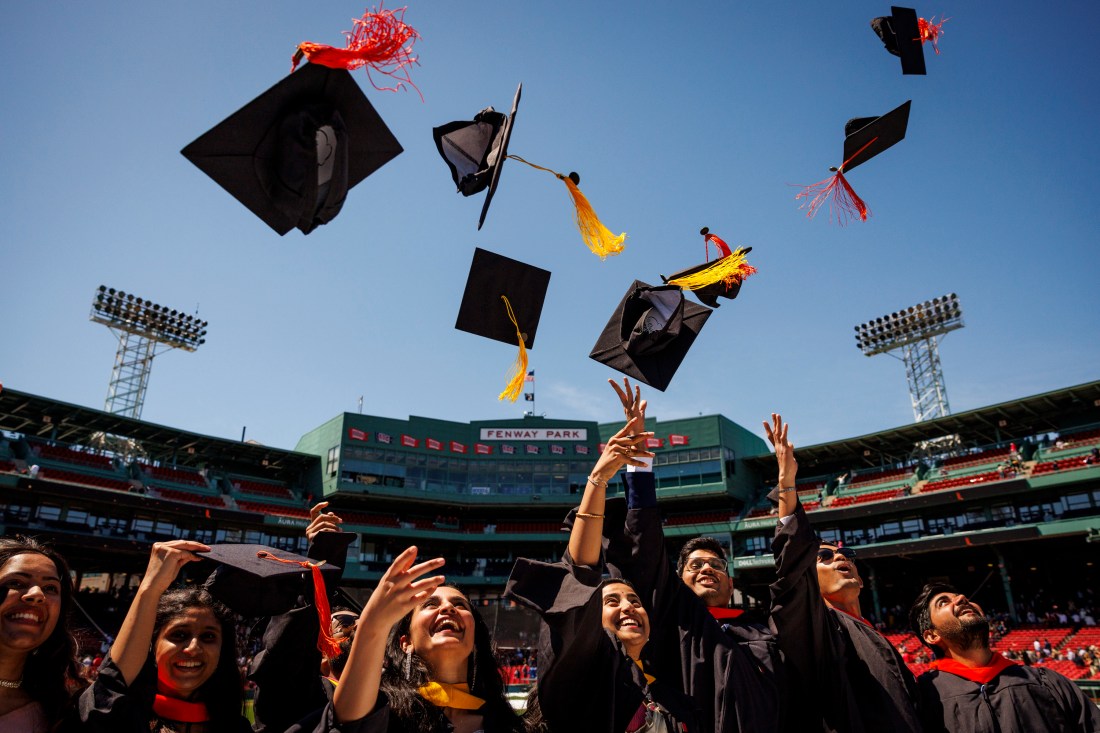
Students: Perseverance and purpose
Graduate student speakers reflected on perseverance and purpose, echoing Northeastern’s motto: Lux. Veritas. Virtus. — Light, Truth, Courage.
Isaiah Simpson, who earned a master’s in mechanical engineering, said he found light in dedication, truth through hardship and courage from the support of the community he found at the EXP Makerspace.
“Not just facts, but the kinds of truths you uncover about yourself when you’re challenged,” Simpson said.
Kushal Shankar, who earned a master’s in computer science, said he arrived in Boston from India “with two suitcases, a heart full of ambition, and a mind full of doubt.”
He found light in late-night study sessions, encouragement from professors and friends who began as strangers.
“Life is a game of inches,” he said. “For me, the first inch was stepping into Northeastern. A new city. A new country. A new life.”
This graduate built her community
Kaitlyn Gonyer, who earned her master’s in applied psychology while studying remotely from a U.S. military base in South Korea, said she almost didn’t apply to Northeastern.
“Because fear told me I wasn’t enough,” she said.
She found community through group chats, shared Google documents and persistence.
“Belonging wasn’t something I was given. It was something I built,” she said.
“We don’t find light. We choose to become it,” Gonyer said.
“Unmuting myself, staying engaged, trusting I was enough,” she said.
“Let’s remember,” Gonyer said, “to carry Lux, even when things feel uncertain; to seek Veritas, even when the truth is difficult; and to choose Virtus, especially when it’s not the easy option.
“Because on the other side of fear is a life bigger, brighter and truer than we ever imagined,” she said.





